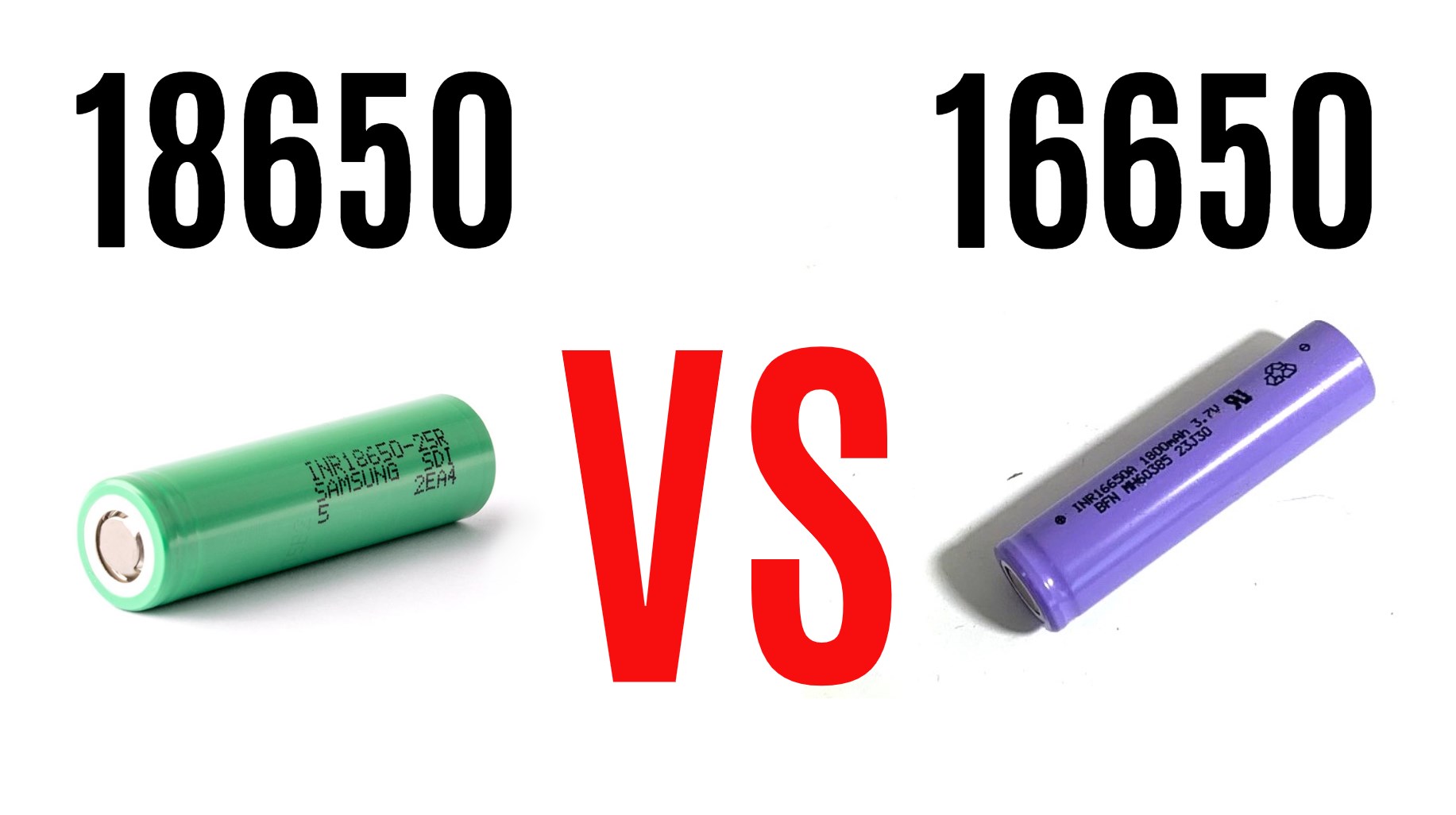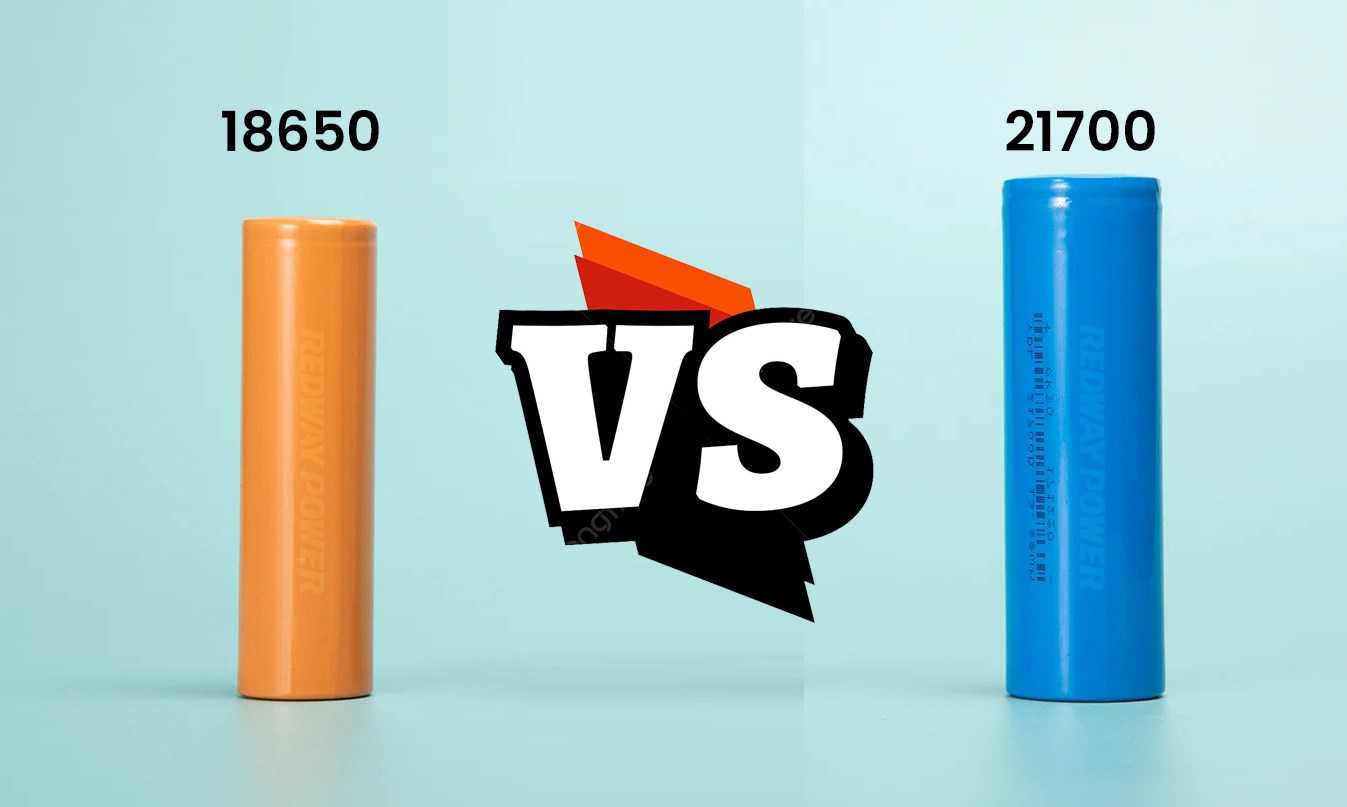18650 batteries, 18mm in diameter and 65mm in length, typically offer higher capacities (2000-3500 mAh) than 16650 batteries (1600-2500 mAh). Both are lithium-ion rechargeables with a nominal voltage of 3.7V. 18650 batteries find wider applications due to their popularity, versatility, and higher capacity, while 16650 batteries suit smaller electronics.
18650 vs 16650 Battery in Size and Dimensions
The 18650 and 16650 batteries differ in size and dimensions. The 18650 battery has a diameter of 18mm, while the 16650 battery has a diameter of 16mm. Both batteries share the same length of 65mm. The variation in diameter may impact the compatibility of these batteries with different devices or battery compartments.
Wholesale lithium golf cart batteries with 10-year life? Check here.
- 18650 Battery:
- Diameter: 18mm
- Length: 65mm
- 16650 Battery:
- Diameter: 16mm
- Length: 65mm
The main difference lies in the diameter, with the 18650 being slightly larger in diameter.
Want OEM lithium forklift batteries at wholesale prices? Check here.
18650 vs 16650 Battery in Capacity
The capacity of an 18650 battery typically ranges from 2000 mAh to 3500 mAh, with newer versions capable of even higher capacities. In contrast, a 16650 battery typically ranges from 2000 mAh to 2500 mAh. The larger size of the 18650 battery enables it to offer a higher capacity, making it suitable for devices with greater power requirements.
- 18650 Battery:
- Typically ranges from 2000 mAh to 3500 mAh, but newer versions can go even higher.
- 16650 Battery:
- Typically ranges from 1600 mAh to 2500 mAh.
The 18650 battery generally has a higher capacity due to its larger size.
18650 vs 16650 Battery in Voltage
Both the 18650 and 16650 batteries have a nominal voltage of 3.7 volts, providing a consistent power supply. This voltage level ensures compatibility with devices designed for this range of voltage.
- Both 18650 and 16650 batteries have a nominal voltage of 3.7V.
18650 vs 16650 Battery in Chemistry
Both the 18650 and 16650 batteries utilize lithium-ion technology, providing a balanced blend of energy density, performance, and reliability. This chemistry choice ensures efficient power delivery and enhances the overall performance of the batteries.
- Both batteries use lithium-ion technology, providing a good balance between energy density, capacity, and weight.
18650 vs 16650 Battery in Applications
The 18650 battery is widely used in applications such as laptops, power tools, and electric vehicles, thanks to its versatility and higher capacity. In contrast, the smaller size of the 16650 battery makes it suitable for smaller electronic devices and portable power banks. Consider the specific requirements of your application when choosing between these battery types.
- 18650 Battery:
- Widely used in various devices such as laptops, power tools, electric vehicles, flashlights, and more.
- 16650 Battery:
- Commonly used in devices like flashlights, portable power banks, and other small electronics.
Due to its higher capacity and versatility, the 18650 battery finds applications in a broader range of devices.
18650 vs 16650 Battery in Rechargeability
Both the 18650 and 16650 batteries are rechargeable, offering sustainability and cost-efficiency. Compatible lithium-ion battery chargers can be used to recharge these batteries, ensuring proper and safe charging.
- Both 18650 and 16650 batteries are rechargeable and can be recharged using compatible lithium-ion battery chargers.
18650 vs 16650 Battery in Availability and Popularity
The 18650 battery is more popular and widely available compared to the 16650 battery. Its extensive use in a wide range of devices, such as laptops, power tools, and electric vehicles, contributes to its popularity and availability. On the other hand, the 16650 battery is less common and may be relatively harder to find.
- 18650 Battery:
- More popular and widely available due to its extensive use in a wide range of devices.
- 16650 Battery:
- Less common and may be harder to find compared to the 18650 battery.
18650 vs 16650 Battery in Heat Dissipation and Discharge Rates
The larger size of the 18650 battery allows for better heat dissipation during usage. It can generally handle higher discharge rates compared to the 16650 battery, making it ideal for devices with high power demands.
- The larger size of the 18650 battery allows for better heat dissipation during usage.
- The 18650 battery can generally handle higher discharge rates compared to the 16650 battery.
18650 vs 16650 Battery in Cost
18650 batteries are often more readily available and may have a slightly lower cost compared to 16650 batteries due to their wider usage.
- 18650 batteries are often more readily available and may have a slightly lower cost due to their wider production and use.
18650 vs 16650 Battery in Weight
Due to its larger size and higher capacity, the 18650 battery is typically heavier than the more compact 16650 battery.
- Due to its larger size and higher capacity, the 18650 battery is typically heavier than the 16650 battery.
In summary, the choice between the 18650 and 16650 battery would depend on the specific application, considering factors such as space constraints, power requirements, and availability. The 18650 battery is more common and versatile, making it suitable for a wide range of applications, while the 16650 battery is more compact and may find use in smaller electronic devices.
FAQs
Will an 18650 charger charge a 16650 battery?
It’s not recommended to charge a 16650 battery using an 18650 charger unless explicitly stated by the manufacturer. While they may share similarities in size and chemistry, their specifications and charging requirements could differ, potentially leading to improper charging or damage to the battery.
What is a 16650 battery equivalent to?
A 16650 battery is similar to an 18650 battery but typically has a slightly smaller capacity and size. It may offer similar voltage and chemistry characteristics but with variations in dimensions and capacity.
What is the difference between 18650 and 16650 battery?
The main difference between 18650 and 16650 batteries lies in their size and capacity. While both are cylindrical lithium-ion batteries, the 18650 is larger in diameter and capacity compared to the 16650. The 18650 typically has a diameter of 18mm and a length of 65mm, while the 16650 may have a smaller diameter and length, resulting in lower capacity.
Do 18650 batteries need a special charger?
While not necessarily a special charger, it’s essential to use a charger designed specifically for lithium-ion batteries, including 18650 batteries. These chargers typically have the appropriate voltage and current settings and include safety features to prevent overcharging and overheating.
Are 21700 and 18650 batteries interchangeable?
In some cases, 21700 and 18650 batteries may be interchangeable, depending on the device’s compatibility and electrical requirements. However, it’s crucial to verify whether the device can accommodate the larger size and potentially higher voltage of a 21700 battery.
Why are 21700 cheaper than 18650?
One reason for the lower cost of 21700 batteries compared to 18650 batteries could be economies of scale. As 21700 batteries become more widely adopted, increased production volumes and advancements in manufacturing technologies may lead to lower production costs, resulting in cheaper prices.
Can I use 21700 instead of 18650 in a flashlight?
Whether you can use a 21700 battery instead of an 18650 in a flashlight depends on the flashlight’s design and compatibility with different battery sizes. Some flashlights may accommodate both battery sizes, while others may only support one specific size. Always consult the flashlight’s manual or manufacturer for guidance.
Is an 18650 better than 21700?
The superiority of one battery over the other depends on the specific requirements of the application. While 21700 batteries generally offer higher capacity and potentially higher current output compared to 18650 batteries, they may also be larger and more expensive. Evaluate your needs and the device’s compatibility before choosing between the two.















